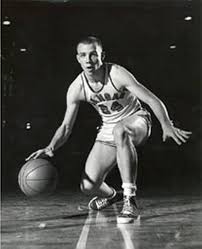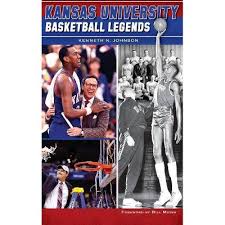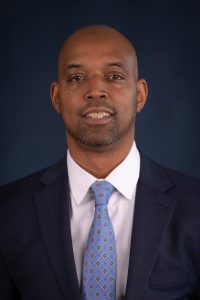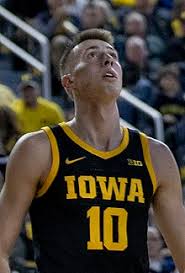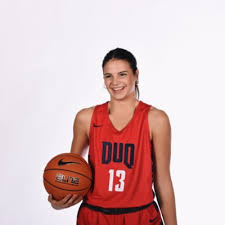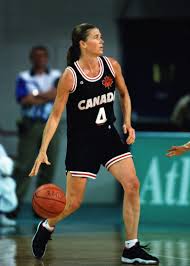CLICK HERE for all of Hoops HD’s Continued and Extensive Preseason Content
We hope you are ready for a season unlike any other: testing, distancing, and bubbles, oh my! Nobody knows exactly what is going to happen, when it is going to happen, or whether anything actually will happen…but in the meantime we will try to restore some order with season previews featuring the best players/coaches/administrators in the country. We continue our coverage with Memphis assistant coach Cody Toppert. He became 1 of the best 3-PT shooters in Ivy League history at Cornell, won a D-League title in Albuquerque, and is now an assistant at Memphis. HoopsHD’s Jon Teitel got to chat with Coach Toppert about his time with the Phoenix Suns and his expectations for this year.
Your father Bob/mother Linda/brother Chad all played basketball at New Mexico: how did you end up 3000 miles away for college at Cornell? I had some good grades and did well at some basketball camps so I started to get recruited by Ivy League schools back east. Once Coach Steve Donahue was hired at Cornell I became a high-priority guy for them and I ended up going where I was wanted.
What makes Donahue such a good coach, and what was the most important thing that you ever learned from him? He really sees the game from an offensive perspective at the highest level: I call it a chess match. A lot of the concepts he runs are similar to those run by a lot of NBA teams: he has a high basketball IQ.
Your 237 3PM remains among the most in Ivy League history: what is the secret to making shots from behind the arc? When your coach has confidence in you that is always a big boost. If you understand that you will not make them all then you can let go of the misses and simply hunt for your next shot.
You won the 2006 D-League title as a player for the Albuquerque Thunderbirds and then played several years of pro basketball in Europe: what did it mean to you to win a title, and what is the biggest difference between basketball in the US vs. basketball overseas? Anytime you can win a title in anything it takes something special: you need to fill your role and your reward for sacrificing what you wanted is that everyone can win. At that point in time the game in the US was heavily-focused on isolation basketball, while the European game was predicated on ball movement. Now we have seen a blend between the 2: the US game is still played at a fast pace but there is more of an European influence with quick screens and players learning how to make reads rather than just run plays.
You spent a year as Assistant Coach/Director of Player Development for the Phoenix Suns: do you think that Devin Booker is on his way to becoming the best player in franchise history, and why on earth did they trade away TJ Warren for cash in 2019?! Booker is well on his way: he is a tremendous professional who is serious about his craft. He dives into everything and is locked in so he will be a perennial All-Star…but the bar was set pretty high by 2-time MVP Steve Nash. The funny thing is that TJ shot over 40% from behind the arc despite having some injuries but he proved that he could be an efficient 19 PPG scorer, and guys like that are not very common.
On June 26th you were named head coach of Eberlein Drive in the TBT…and then 9 days later your team was disqualified after 1 of your players tested positive for coronavirus: what was your reaction when you 1st heard the bad news, and what would you have done with your share of the $1 million prize money if your team had won it all? We were shocked to say the least. We had some great practices and I thought that we had a roster that could have won it. I am also an assistant with the Haitian national team and we have a non-profit that tries to build courts and fund basketball-related activities so I was planning to donate any prize money toward that cause.
You work for Coach Penny Hardaway: how does working for a “regular” coach compare to working for a 4-time NBA All-Star who earned more than $120 million during his pro career? It is different on so many different levels. He lives 1 life as our coach but has another life as “Penny Hardaway”. He means so much to this city and continues to do so much for this community that he is pulled in many directions: that alone could be a full-time job! Our players are getting a cheat-sheet not only on what it takes to get to the NBA but the consistency it takes to stay there. It is super-exciting to see how much he pours into caring about our team at the ultimate level. Since he does not need the money/status he is free from that burden and can really help our guys chase the process of development rather than chase wins. I think we will see a sustainable program that can withstand the test of time that is successful for many years to come.
You had an amazing roster last year but lost James Wiseman to suspension, Precious Achiuwa to the draft, Tyler Harris to transfer, and Isaiah Maurice to graduation: how are you going to try to replace all of that talent? We had the very youngest team in the entire nation so that was also a battle. We have added some new guys via transfer including Landers Nolley II, who is immediately eligible.
Landers transferred in from Virginia Tech: how does he look so far? He has proven that he can score/play in 1 of the best conferences in the country (ACC) and he wants to continue to develop his versatility and show that his skill set can transfer to the highest level. I know that he can make shots and I am confident that he can make plays for us as well.
What are your goals for this season, and what are your expectations for this season? We set the bar high by finishing 1st in the country in FG% defense. It was remarkable to hold opposing teams to 36.1 FG% on average and that needs to remain a staple for us. On the flip side, we had an incredibly high # of turnovers and lost a lot of games by 4 PTS or less, which means that a couple of turnovers cost us a couple of possessions in those close games. Instead of swinging for the fences we need to hit singles, hold onto the ball, and make some FTs. If we can do that then we will have the opportunity to be pretty darn good.


